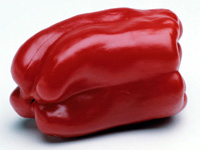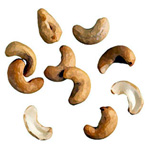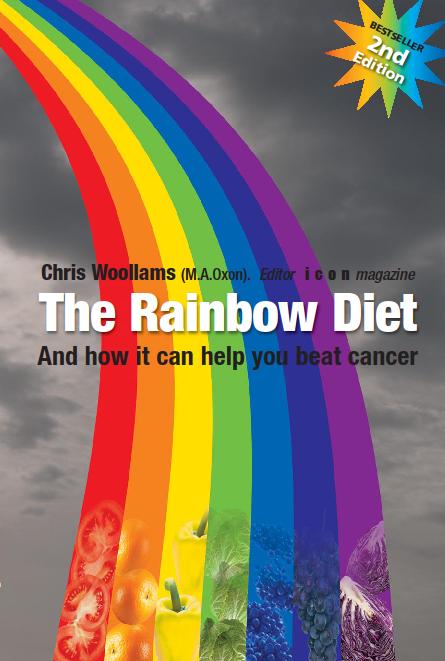A diet to fight cancer?

Diet and cancer, cancer nutrition, an anti-cancer diet? Call it what you will. Certain foods are linked to an increased risk of cancer, while others may well help in the fight to beat cancer.
In our research centre Cancer Watch we cover hundreds of research studies on which foods fight cancer. One American cancer body has stated that there is overwhelming research evidence that a good diet can improve survival times and even prevent a cancer returning.
Here is a Centrefold we ran in icon magazine about tips for a cancer diet and tips on cancer nutrition. It is intended as a start - you will find much more by using the links below.
Add to your shopping list today:
(All organic where possible)
1: Olive Oil - while there is research evidence that too much red meat consumption may increase risk of certain cancers, you can reduce harmful fat and cholesterol levels in your body by kicking out the cooking oils, margarines and spreads as well. And especially the cows’ dairy which increases levels of growth hormone (IGF-1) in your body when you really don’t need it. Extra virgin olive oil or oils like walnut oil can be very ’protective’ in a cancer diet as research shows they can increase good fat and cholesterol levels at the expense of bad fats and cholesterol. There is also research that shows olive oil has an action against certain microbes involved in stomach and colorectal cancers.
2:
Whole Oats & Whole grains - high blood glucose levels are associated with higher levels of cancer and shorter survival times. The volume of research evidence is overwhelming. Avoid glucose, chocolate, cakes, biscuits and refined bread, biscuits, pasta. Instead eat whole foods. They contain more vitamins and minerals by far, they do not flood your body with glucose, your intestinal bacteria will thrive on them and release cancer-fighting natural compounds like folic acid, biotin and vitamin B-12, and they contain fibre factors like lignins which bind to fats in the blood stream and help remove cholesterol and toxins from the body. Fresh nuts and seeds are full of good oils, fibre and vitamins too.
3:
Pulses - if your cancer is oestrogen-driven (and many solid tumours for both men and women are) the aggressive human oestrogens can be blocked by much, much weaker plant oestrogens called phytoestrogens - eat lots of gree vegetables and pulses like chickpeas, lentils, soy and beans.

4: Eat your ’greens’ - especially broccoli and all cruciferous vegetables. Essential source of polyphenols, indole3carbinol and vitamin K, which are very helpful with a variety of cancers. Try watercress which has many benefits that may well help.
5: Red and Yellow peppers - along with watermelon, sweet potatoes, apricots and many more, these are a terrific source of carotenoids and vitamin C, much better than oranges.
6: Apples - good source of quercitin and essential polysaccharides to improve your immune system.
7: Onions and garlic - and leeks, spring onions etc. off er a variety of important benefits from the ability to stop the development of blood supplies to tumours and blood clarification. they also contain polysaccharides which aid the immune system and other preventative ingredients like allycin and quercitin.

8: Beetroot - and dark red cherries, plums and blueberries. These foods contain anthocyanins and other bioactive compounds linked to the fight against cancer in research.
9: Turmeric or curcumin - Professor Aggarwal of MD Anderson says that he knows of no cancer not affected by its powers. Enough said!
10: Green Tea - contains polyphenols and is linked to lower risk of many cancers, like leukaemia and there is even research on its effects against cancer; 5-6 cups per day.
Most importantly - eat fresh and avoid salt (which is linked to a number of cancers in the gut particularly), take multi-strain probiotics, a daily fish oil supplement and have half an hour in the sunshine everyday (or take vitamin D supplements). Take light daily exercise and try to hold a good weight. Both are important in terms of survival times too.
It’s a start!
People who read this also read:
A diet for chemotherapy (Click here to go to it)
The Rainbow Diet (Click here to go to a review)

 At last, the definitive, research based book on how to build a diet to help beat cancer. Click here to read about it.
At last, the definitive, research based book on how to build a diet to help beat cancer. Click here to read about it.